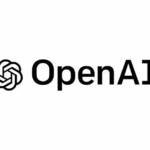As AI-generated content becomes increasingly widespread, there has been a rising concern about its impact on the quality of information available online. Google, the go-to search engine of the world, employs different measures to distinguish what is genuine and informative content, Forbes reports.
Google’s Guidelines on AI Content
According to Google’s guidelines, the primary factor in search engine rankings is the quality of the content. The company emphasizes that content should be helpful, offering readers valuable insights, and should be created with the intent to inform people rather than to manipulate search rankings. Google acknowledges that automation can aid in content production, particularly in cases like weather forecasts and sports scores, which provide straightforward, valuable information to users.
However, Google does not universally accept all AI-generated content. The guidelines state that for any content, whether AI or human-produced, to rank well, it must offer genuine value. Content specifically designed to game search rankings, including mass-produced AI content that lacks substantial information, is considered a violation of Google’s spam policies. Such content may be ranked lower or removed entirely from search results if it is identified as spam.
Identifying AI-Generated Content
Google employs various systems, including its SpamBrain technology, to detect patterns and signals indicative of spam, regardless of whether the content is produced by humans or AI. This approach is part of Google’s efforts to prevent AI-generated content from cluttering search results and diminishing the quality of information available to users.
Recent research conducted by a company studying Google’s manual actions found that of the 175 websites deindexed by Google in March 2024, up to one-third contained more than 95% AI-generated content. This suggests that Google is actively penalizing sites that rely heavily on AI content without providing additional value or authenticity.
Rising Presence of AI in Search Results
Despite Google’s stringent policies against spam, the presence of AI-generated content in top search results has been on the rise. According to research conducted by the same company, as of September 2024, approximately 13.97% of the top 20 Google search results for 500 keywords featured AI-generated content. This marks a significant increase from late 2022, when the introduction of ChatGPT saw AI content making up only 5.61% of top search results.
This upward trend indicates that while Google is trying to identify and penalize low-quality AI content, a considerable portion of AI-generated material is still successfully integrated into search rankings. The reasons behind this increase may include advancements in AI content creation and the ability of high-quality AI content to meet Google’s standards for helpfulness and value.
Best Practices for Online Publishers
Given the growing prevalence of AI-generated content, online publishers, writers, and editors are advised to adopt best practices to ensure their content remains competitive and compliant with Google’s guidelines. Key recommendations include:
1. Balance AI use and Human input: While AI tools can enhance content creation by providing source lists, drafting outlines, or assisting with editing, it is crucial for writers to infuse their unique expertise into the final copy. This involves verifying sources, conducting in-depth research, and adding original analysis to maintain a human touch.
2. Preserve Human Expertise: Publishers should avoid relying solely on AI for content creation. Emphasizing authentic human perspectives and original research helps meet the high demand for genuine intellectual work. Steven Pinker, a Harvard professor of psychology, highlighted the enduring value of authenticity in intellectual creations, suggesting that AI is unlikely to replace human writers entirely.
Authenticity is Valuable to Search Rankings and Readers
Search engines and the end users place a high value on authentic and informative content made for human consumption. To foster strong relationships with readers, avoid Google penalties, and enhance search engine rankings, publishers should approach AI tools with moderation. They should integrate AI optimizations in a way that allows the distinct voice of their writing to shine through, so that they can build an authentic connection with their audience.
(Photo by sarah b on Unsplash)








